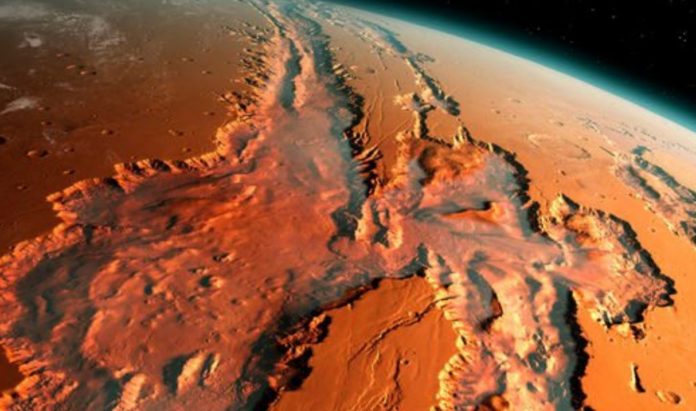According to the expert, who is in search of alien life on Mars, believes that microbes could have moved underground over the last four billion years.
In a recent study published by Nature Astronomy, Prof Nathalie Cabrol, director of the Carl Sagan Centre for Research collaborating with Search for Extraterrestrial Intelligence (SETI) Institute, suggested that microbial biosphere could be on the red planet and microbes could have found good living conditions underground over the last four billion years.
The study was based on “Mars analogues”, an environment that is cold and inhospitable like Antarctica.
- Brief Anger Hampers Blood Vessel Function Leading to Increased Risk of Heart Disease and Stroke – New Study
- New Blood Test Pinpoints Future Stroke Risk – Study Identifies Inflammatory Molecules as Key Biomarker
- Enceladus: A Potential Haven for Extraterrestrial Life in its Hidden Ocean Depths
- New Experiment: Dark Matter Is Not As ‘DARK’ As All We Think
- Scientists in Fear of This New Predator From Red Sea Eating Native Species in Mediterranean
Her research suggests landscapes which appear to be void of habitation could support life – and that extreme environmental factors such as a thin atmosphere, UV radiation, salinity, aridity and temperature fluctuations help create the conditions for life.
The interaction of these factors “unlocks life’s distribution and abundance in those landscapes”, according to Prof Cabrol.
While “that does not necessarily make it easier to find” evidence, Prof Cabrol said observing these factors could help in the search for life on Mars.
She then suggested Mars could have hosted rivers, oceans, wind and dust storms around 3.6 billion years ago.
She said: “Dispersal mechanisms still exist today, and they connect the deep interior to the subsurface.”
However, Prof Cabrol warns there is a “deadline” for collecting samples from Mars as human explorations start being planned.
NASA’s Perseverance rover has been on Mars for over a month, and has not yet found signs of life.
However, team scientists have determined that several of the rocks are chemically similar to volcanic rocks on Earth, and that wind and water have eroded some of them.
Kenneth Farley, geochemist at the California Institute of Technology in Pasadena and the mission’s project scientist, added: “Everything is going great so far.”
- Brief Anger Hampers Blood Vessel Function Leading to Increased Risk of Heart Disease and Stroke – New Study
- New Blood Test Pinpoints Future Stroke Risk – Study Identifies Inflammatory Molecules as Key Biomarker
- Enceladus: A Potential Haven for Extraterrestrial Life in its Hidden Ocean Depths
- New Experiment: Dark Matter Is Not As ‘DARK’ As All We Think
- Scientists in Fear of This New Predator From Red Sea Eating Native Species in Mediterranean
During its mission, Perseverance will collect approximately 30 tubes full of Martian rock and soil, laying them down on the Martian surface for a future mission to retrieve and fly back to Earth for scientists to analyse.
